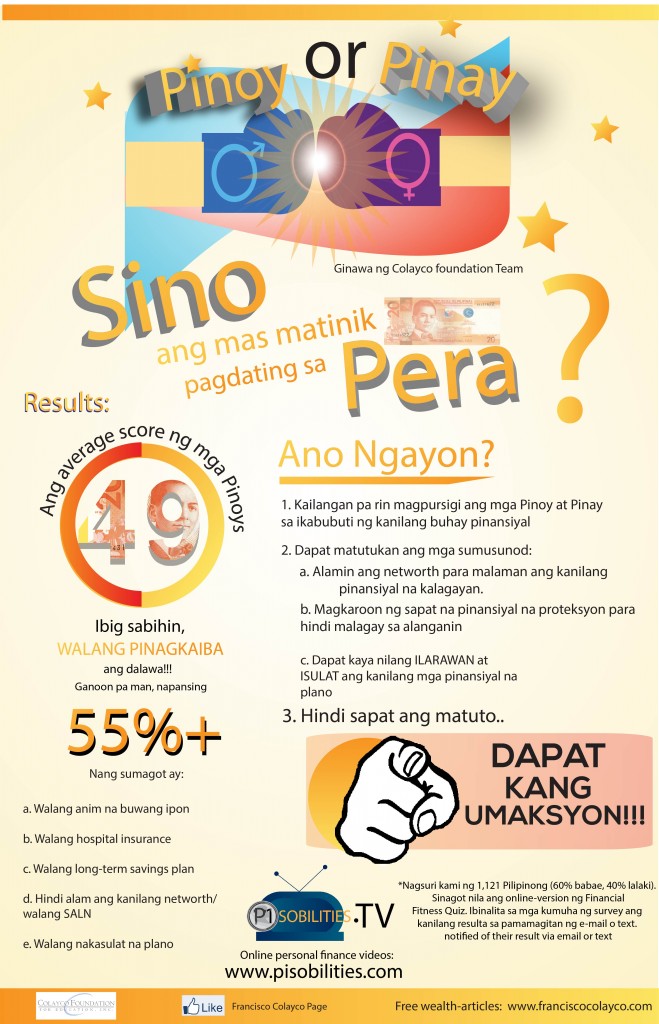ni: Francisco J. Colayco
*unang lumabas sa Bulgar noong ika-13 ng Agosto, 2009.
Ang direktang pamumuhunan sa stock market ay dapat ipinauubaya na lang sa mga eksperto. Sa MF at UITF, sigurado kang merong mga magagaling na tagapamahala ng pondong walang tigil na binabantayan ang mga parte at seguridad sa kanilang portfolio. Alam ng mga ito kung saan dapat ilagak ang pera mo.
Mas malaki ang kikitain ng perang sa MF at UITF dahil ito ay nagko-compound. Ang ibig sabihin, nadaragdagan at naiipon ang kinikita nito. Halimbawa, ang tubo mula sa pagbebenta ng mga equity o fixed-income security ng MF o UITF ay muling ibinibili ng bagong mga equity o fixed-income security para sa parehong MF o UITF. Kaya kapag ibinenta na ang mga parte sa kanila, patung-patong na ang kinita ng ipinuhunan.
Ang maganda pa, ang mga stock at seguridad na pinamumuhunanan ng MF o UITF ay pinapatawan na ng final withholding tax, kaya’t hindi na kailangang magbayad ng dagdag na buwis ng mga namumuhunan sa kanila. At hindi lang ‘yun — madali pang ibenta at gawing pera ang MF o UITF. Kahit anong oras ay maibebenta ito sa kasalukuyang presyo sa merkado.
May tatlong klaseng MF at UITF equity o stock fund, fixed-income o bond fund at balanced fund. Ang equity fund ay kadalasang ipinupuhunan sa stock market kaya mas malaki ang kita pero mas malaki rin ang panganib. Ang fixed-income fund o bond fund naman ay karaniwang ipinupuhunan sa mga Government Securities at iba pang fixed-income securities kaya mas mababa ang kita pero hindi rin naman ganoon kapanganib. Ang balanced fund naman ay hinahati — ang kalahati ipinupuhunan sa stock market at ang kalahati’y ipinupuhunan sa bond funds o fixed-income funds. Katamtaman lang pareho ang kita at panganib dito.
Ang bawat MF at UITF ay may kanya-kanyang layunin sa pamumuhunan at kanya-kanyang mga patakaran at kundisyon. Mas mainam kung kakausapin muna ang mga namamahala para malaman kung umaayon sa sarili layunin ang layunin ng MF o UITF na pamumuhunanan bago maglabas ng pera.
Dapat ring malaman na hindi kikita ng interes o makakokolekta ng dibidendo habang nakalagak ang pera sa MF o UITF. Kikita lang talaga kapag ibinenta na ang iyong mga parte o shares. Ang pinagkaiba ng presyo ng NAV noong binili ang iyong mga parte at kapag ibebenta na ang halaga ng iyong kinita o nalugi.
Sali na sa aming Investability: Mutual Fund seminar sa ika-20 ng Setyembre, 2014. Mag-click lang dito para sa karagdagang detalye.





